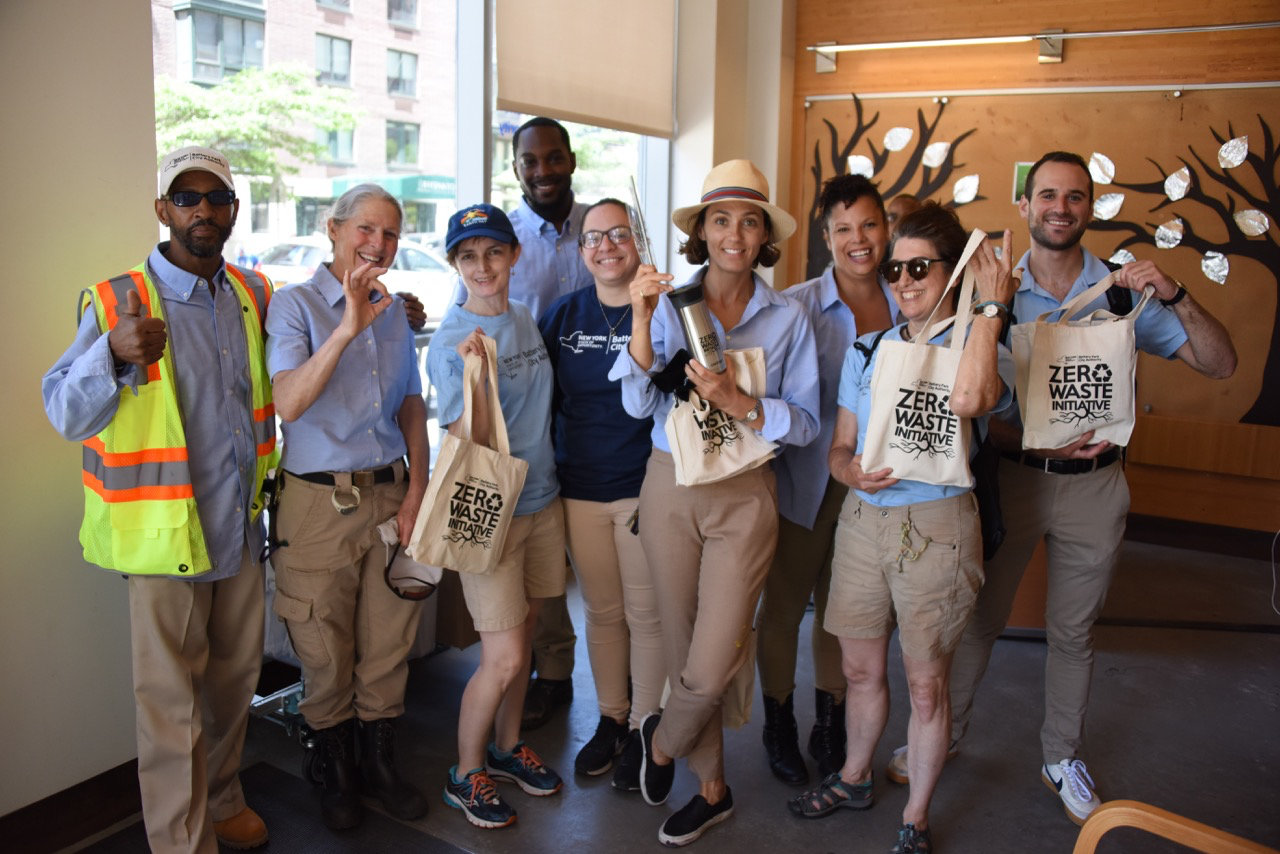
The TRUE Certification team has the privilege of helping organizations progress in their zero waste goals. Zero waste practices are not only good for people and the planet, but they also save costs and generate revenue, supporting the triple bottom line. One of the best examples of this partnership in action is the TRUE Gold Certification of Battery Park City Authority.
TRUE (Total Resource Use and Efficiency) is the first program dedicated to measuring and improving zero waste system performance by encouraging the adoption of reliable, resilient and sustainable practices. Administered by Green Business Certification Inc. and supported by the U.S. Green Building Council, TRUE evaluates how well facilities perform in minimizing their nonhazardous solid waste and maximizing efficiency in the use of resources. TRUE sets a high bar by going beyond diversion and focusing on upstream policies and practices.
With TRUE, a facility or building can achieve its zero waste goals, cut their carbon footprint, and support public health. The focus for TRUE is on upstream initiatives: reduction, reuse, and closed loop practices. These categories are usually not recognized in typical waste diversion calculations but are the most powerful. By approaching waste from this perspective, TRUE projects will find opportunities to improve diversion of all waste streams, not just waste to landfill.
Integrating zero waste practices into Manhattan
Battery Park City Authority (BPCA) is responsible for developing and maintaining a well-balanced community on the Lower West Side of Manhattan. BPCA is committed to sustainability leadership and takes pride in their Sustainability Plan, new Green Guidelines, and Implementation Plan. The organization looks for ways to more precisely define, enhance, and measure its sustainability objectives and achievements in the process of moving the community closer to carbon neutrality by 2050. Throughout this process BPCA began to identify new pathways and strategies for sustainability, and that is what brought the organization to discover TRUE.
Battery Park City Authority is a 92-acre site that was established in 1968. The site includes commercial buildings, residential buildings, retail, and parking spaces, all of which brought unique opportunities to introduce new zero waste practices. By focusing on reduction, reusing, recycling, and redesigning, BPCA was able to make significant stride in their sustainability goals.

Redesigning for zero waste with employees in mind
For the objective of redesign, BPCA focused on remodeling their recycling program. Their landfill and recycling bins were over-sized, and so they decided to use smaller bins that would be centrally located and created new, readable signage that highlighted accepted material. On the topic of reuse, BPCA provided all employees who pledged to adopt BPCA’s Zero Waste Goal with “Success Kits'' that included metal silverware, a metal straw with a cleaner, a metal thermos, and a metal water bottle. By distributing reusable utensils, BPCA sought to minimize and eventually eliminate this type of waste. When looking at ways to reduce, BPCA decided to improve their uniform distribution system by using gardening twine to bundle and distribute the new uniforms. By doing so they eliminated 150 single-use plastic bags from BPCA’s waste stream.

One of the most important ways that BPCA promotes a circular economy within their organization is through their long-standing community compost program. Food waste is collected from not only staff but the greater public, including residents, local markets, those who work and visit BPCA, and local schools. Over the years, BPCA has expanded its composting efforts and currently there are three drop-off points located in the north, south, and middle of BPCA. The collected food waste is processed in-house daily in a composting system called the ‘Earthflow’.
Using data to work toward improvements
The Zero Waste Advisory Committee, made up of staff from various departments, conducts monthly waste audits in order to meet TRUE’s 90% diversion rate goal. The waste is documented by type of waste, location of waste, time of collection, and weight. Findings are documented and used to calculate diversion rates. With these specifics BPCA has a better understanding of the contents of their waste stream and understands how or whether certain items need to be diverted. The findings are also used to better educate staff in the process.
Overall the certification process with TRUE allowed the Battery Park City Authority team to have clear goals and steps to take in their zero waste program goals. This demonstrates their leadership within the New York City community and their commitment to sustainability. The team at TRUE has been inspired by the work done by this organization and hopes their success story will encourage others to tackle their sustainability goals as well.